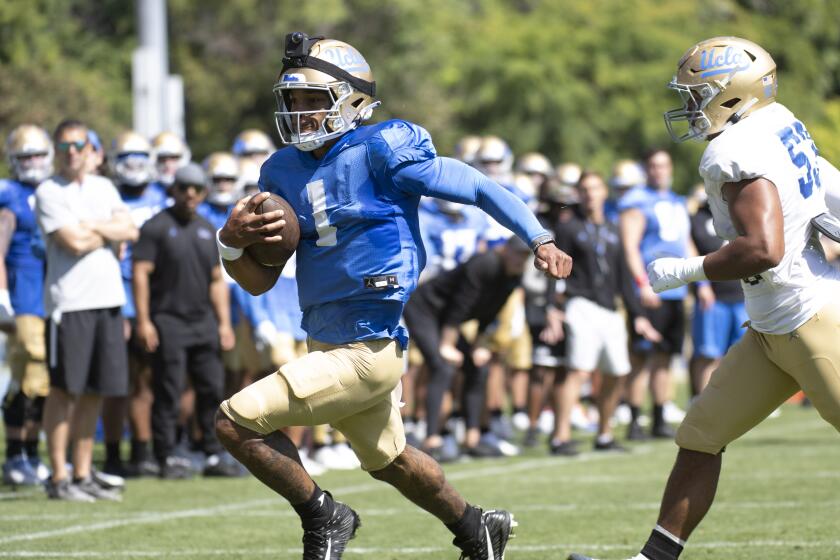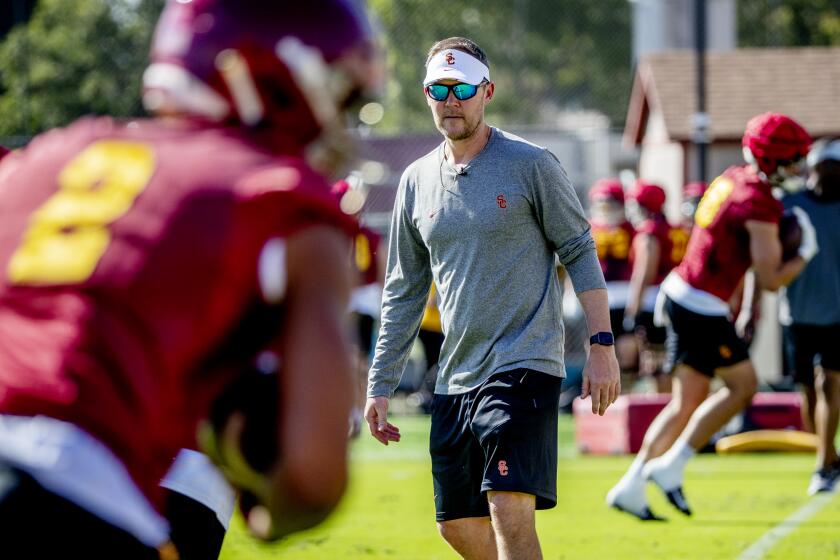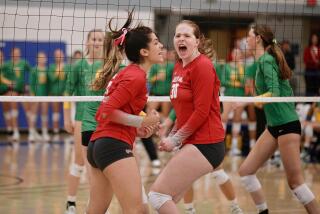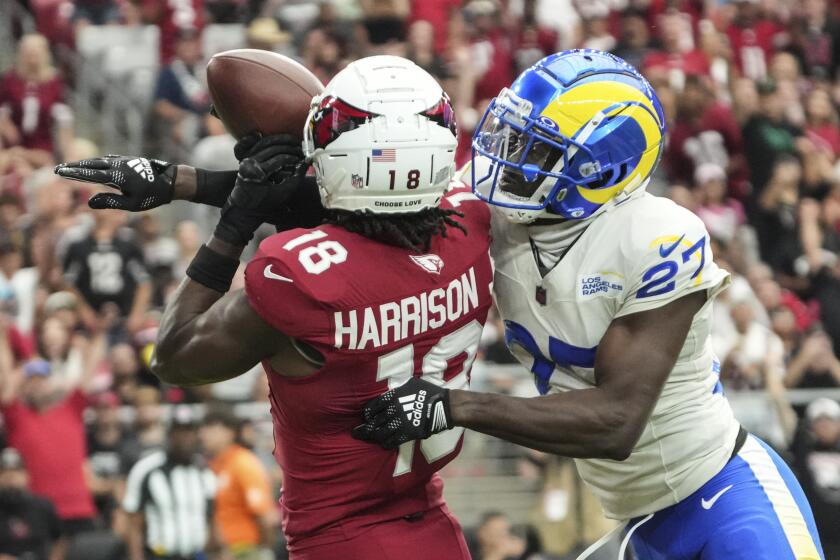How a book spurred Long Beach State’s transformation into a volleyball powerhouse
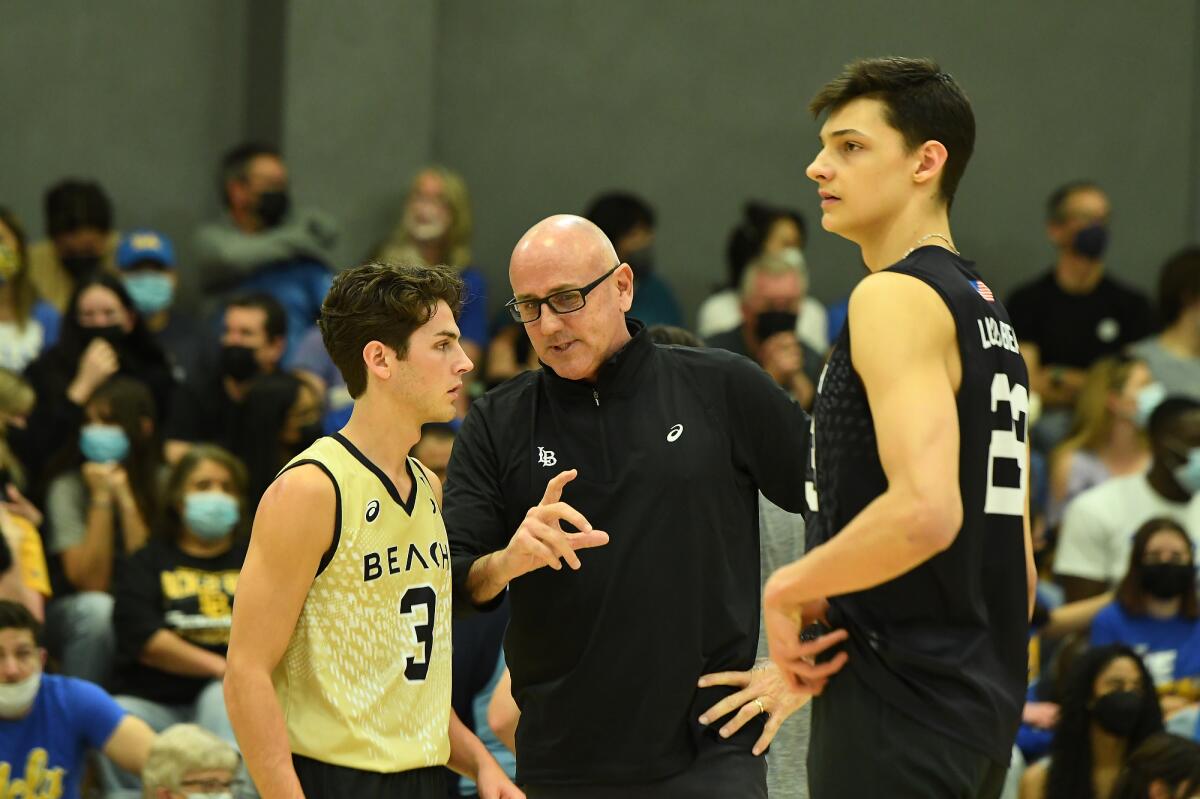
Long Beach State’s national championship trophies greet everyone who enters the school’s volleyball offices in Walter Pyramid. Alan Knipe, who has helped the men’s volleyball team put three gleaming prizes on the table a few feet away from his office door, may soon need to clear some more space.
Three years removed from back-to-back national championships, Long Beach State is on the cusp of another successful chapter. The top seed in the NCAA tournament at Pauley Pavilion this week, the Beach (20-5) begins the quest for its third national title in five years Thursday in the semifinals against UCLA or Pepperdine, which play in Tuesday’s quarterfinal.
After winning one NCAA championship in the first 47 years of its program, Long Beach State is now a perennial power. Beach won back-to-back championships in 2018 and 2019, ending a 27-year NCAA title drought for the program on the back of a vaunted senior class that included All-Americans TJ DeFalco, Kyle Ensing and Josh Tuaniga.
UCLA is optimistic about the direction of its football program, which has plenty of depth in some key areas. Here are five takeaways from spring practice.
In the COVID-19 pandemic’s twisted reality, Long Beach State’s coronation as a men’s volleyball powerhouse feels like a lifetime ago. Two pandemic-interrupted seasons following the last title make it feel like the roster changed over in an instant, Knipe said. But changing from a veteran-laden team to a squad with just one senior hasn’t dampened expectations for the Beach.
“People don’t come here to play for second, right?” junior middle blocker Shane Holdaway said.
The championship repeat was the culmination of a rebuilding process that began in 2013 when Knipe returned from a three-season hiatus. After coaching the U.S. national team during the London Olympics, Knipe felt like a new a new coach.
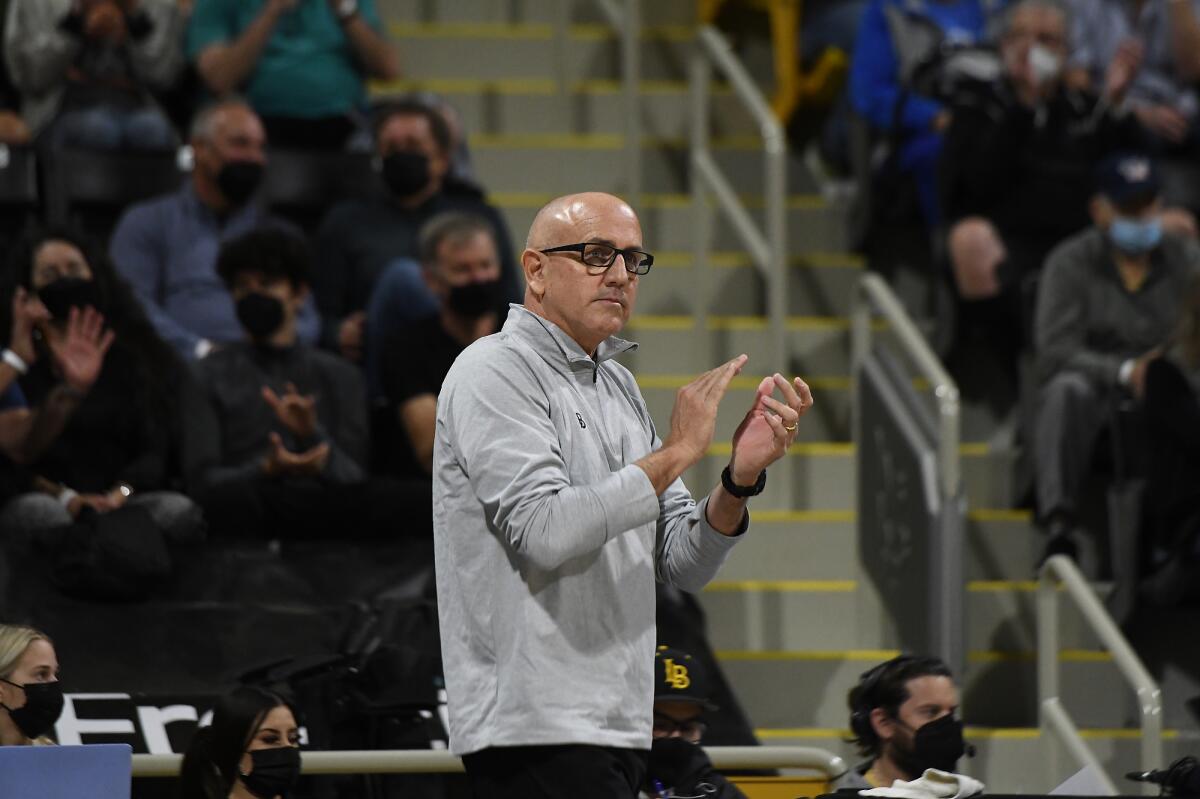
The only person to be involved in all three of Long Beach State’s national titles, Knipe is as familiar as anyone with the program. He starred on the 1991 national championship as a player, moved to the bench as an assistant and took over the program in 2001. Spending almost all of his adult life in the same place made it difficult to make radical changes from within, Knipe said. The national team opportunity brought a fresh perspective.
One of the first things Knipe did to establish a new culture of trust, open communication and accountability was assign team reading, handing out copies of “The Five Dysfunctions of a Team,” a book that identifies things that plague even successful teams and how to address potential problems.
A junior on that team, assistant coach McKay Smith looked at the assignment with a skeptical eye. It only took a few pages for him to commit to turning the page on Long Beach State’s culture.
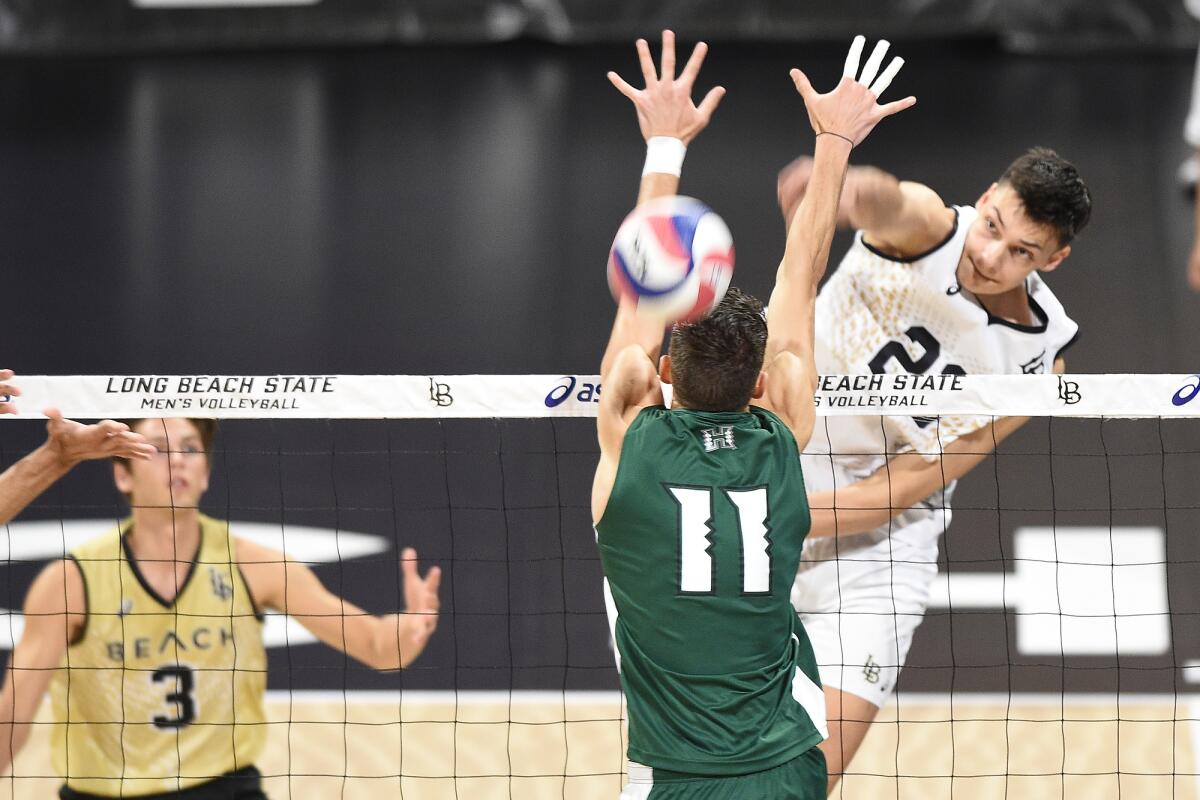
The book addressed how teammates can communicate, trust and confront conflicts together, setting a foundation for players and coaches who could then use valuable practice time to focus on on-court performance. The reading exercise has expanded to include different books for each class, including Malcolm Gladwell’s “Outliers” and “Legacy,” which focuses on the All Blacks, New Zealand’s national rugby team.
“Our culture is by design,” Knipe said. “We work at it. We build it. We talk about it.”
Each year, players present their takeaways from their books to the team. While the books can stay the same, Smith, who is in his fourth year as an assistant, notices how each group’s impressions change. It reminds the coaching staff of how important it is to embrace the current chapter of the program’s success without comparing it to seasons past.
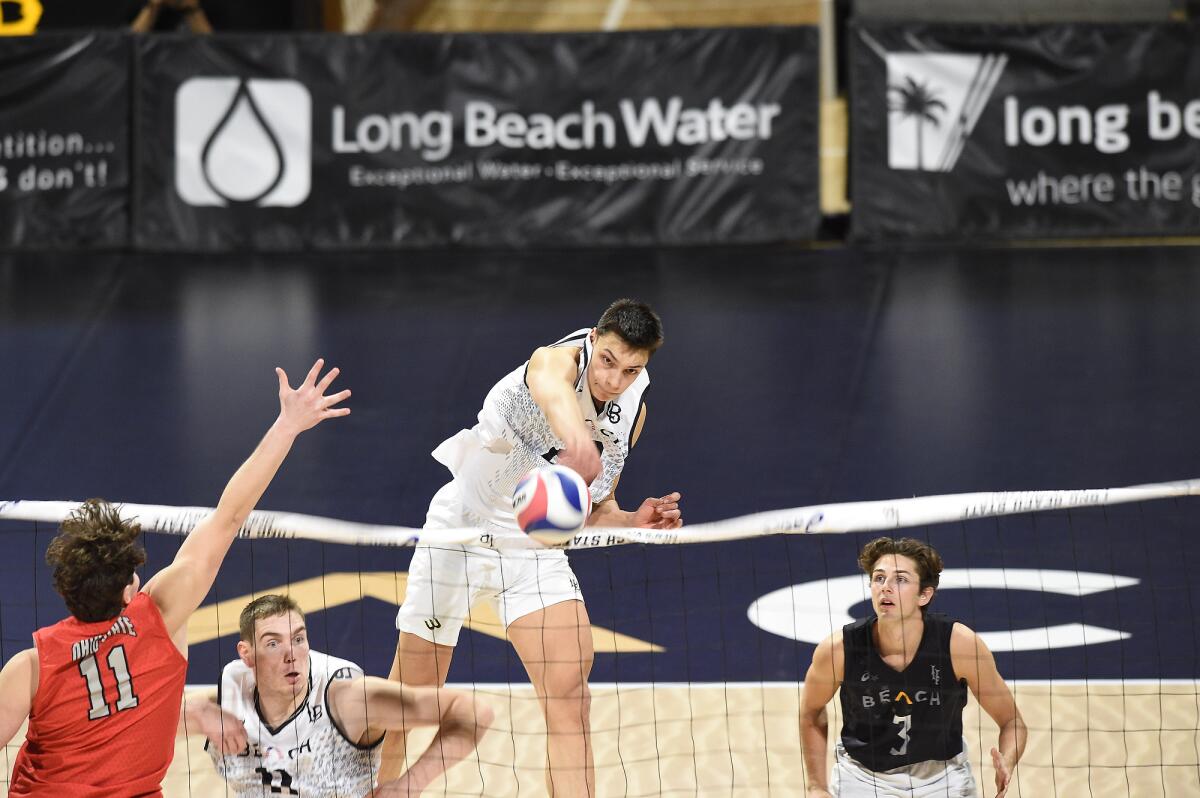
“We’re not trying to be the 2019 team or the 2021 team or the 2023 team,” Knipe said. “We’re only trying to be the 2022 team.”
Knipe tries not to get ahead of himself when looking at the trajectory of his program, although he could be forgiven if he’s caught smiling at the prospect of building on the success of this year’s underclassmen. Setter Aiden Knipe, a redshirt sophomore, is playing in his first full season after the pandemic altered the beginning of his college career. The head coach’s son is third in the country in assists per set with 11.08.
Lincoln Riley’s focus on raiding the transfer portal has irritated Pittsburgh’s Pat Narduzzi as his top receiver, Jordan Addison, considers joining USC.
Big West freshman of the year Alex Nikolov leads the Beach attack with 4.6 kills and 5.56 points per set, which rank third and second in the country, respectively. The son of former Bulgarian national team captain Vladimir Nikolov, Alex is, by his head coach’s estimation, a “generational volleyball player in college volleyball.”
While the talented 6-foot-8 outside hitter had opportunities to play professionally in Europe immediately after high school, Nikolov was interested in the unique combination of academics and athletics offered in the United States. He hadn’t heard of Long Beach State until about two years ago. He quickly learned that, despite its lack of international name recognition, it was a force in men’s volleyball.
The 18-year-old intends to keep Long Beach State at the top in the coming years.
“I came here to win four national championships,” Nikolov said with a smile.
More to Read
Go beyond the scoreboard
Get the latest on L.A.'s teams in the daily Sports Report newsletter.
You may occasionally receive promotional content from the Los Angeles Times.

